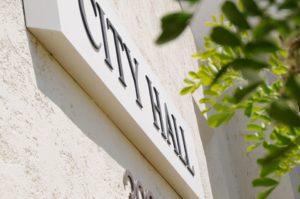By Recker McDowell —
We all know the Coronavirus is having an unprecedented impacted on public health and everyday life. The pandemic is also the ultimate ‘black swan’ to threatening the economy, jobs and markets.
The economy — from the tourism and travel industries down to small businesses and independent contractors — is being rocked to its core.
The response to the pandemic from governments, employers, communities and neighbors also must be as unprecedented and unparalleled as this challenge. The economic stimulus needs to be federal, state and local. It needs to include the all levels of the private sector and rooted in employers, small businesses, investments and jobs.
Employers need to think twice about embarking on their usual approach paths, especially layoffs. U.S. Treasury Secretary Steven Mnuchin worried the country could see a 20 percent unemployment rate without action. Federal Reserve Bank of St. Louis President James Bullard said U.S. unemployment could hit 30 percent with a 50 percent dive in GDP.
What happens if employers and business continue to embark on the traditional path of layoffs, furloughs and job cuts?
Employers, if they can, must show some patience and moderation to their layoffs and pullbacks. We don’t want to take a path of collective economic self-destruction because of moves that put millions or workers out of jobs and small businesses out of business.
A big concern is the lack of visibility of when the Coronavirus pandemic will subside. But looking at what has happened in South Korea, Japan and China there is some visibility that there is light at the end of a very tough tunnel.
But coming out of the tunnel requires confidence and hope over fear and worry. Businesses, employers and investors need economic confidence that we are on the better side of the pandemic curve. Workers need to not fear for their jobs and livelihoods. Remember those workers are consumers and make up two-thirds of the U.S. economy.
So how do we come out of all this?
 State and local governments need help from the federal government to respond to the virus. All levels of government (not just Washington) also need to find ways to help impacted workers and businesses and have strong growth and jobs-oriented programs and policies in place for the aftermath.
State and local governments need help from the federal government to respond to the virus. All levels of government (not just Washington) also need to find ways to help impacted workers and businesses and have strong growth and jobs-oriented programs and policies in place for the aftermath.
That can mean direct aid, tax relief, government investments and looking at zoning, land-use, regulatory policies to how they can be fine tuned or overhauled to save and create jobs. Tax and other help for small businesses, entrepreneurs, restaurants and independent contractors are as important as federal assistance for airlines, hotels and other big industries.
In places such as Scottsdale and Phoenix it means helping restaurants, the tourism sector and small businesses who are the backbone of the regional economy.
We hope to see cities, counties and states start parallel tracks of responding to the public health aspects of the Coronavirus and creating their own economic stimulus programs.
They need to work with Washington as well as major employers, small businesses and key industries on what will work best for their communities. They need to avoid the political fights seen in the U.S. Senate.
We are all depending on it.

